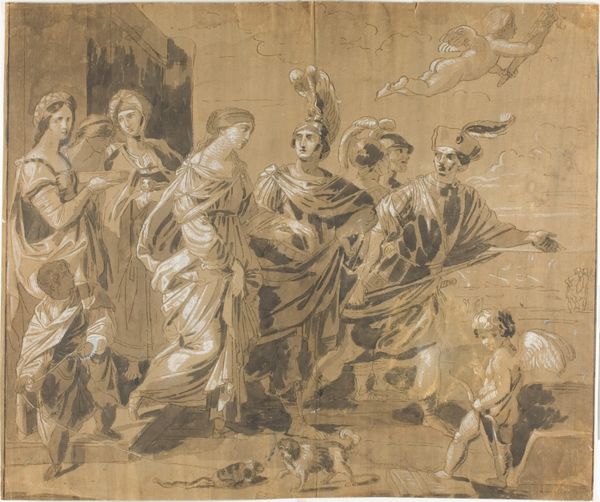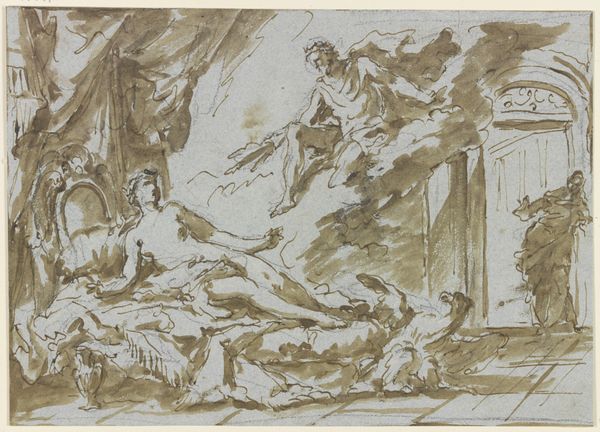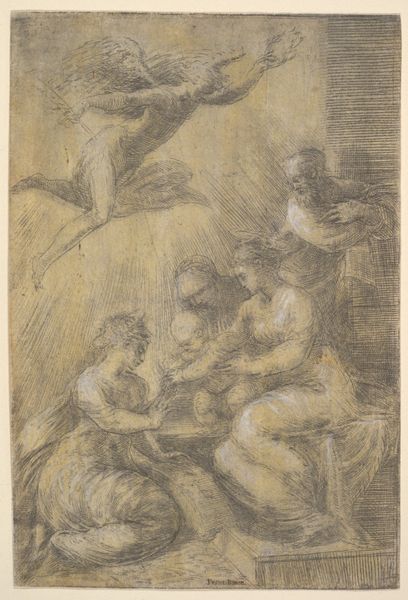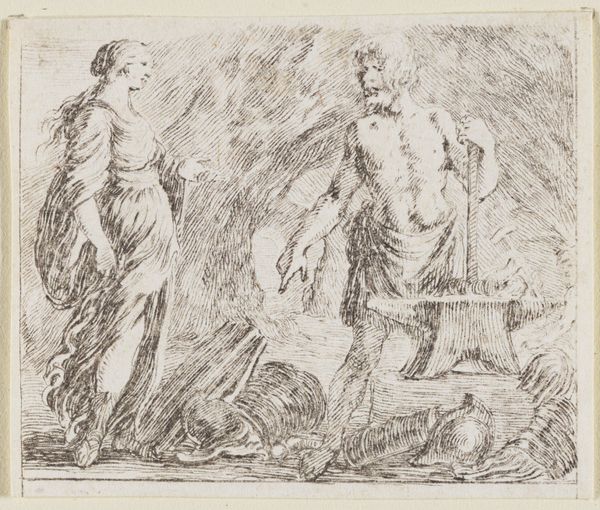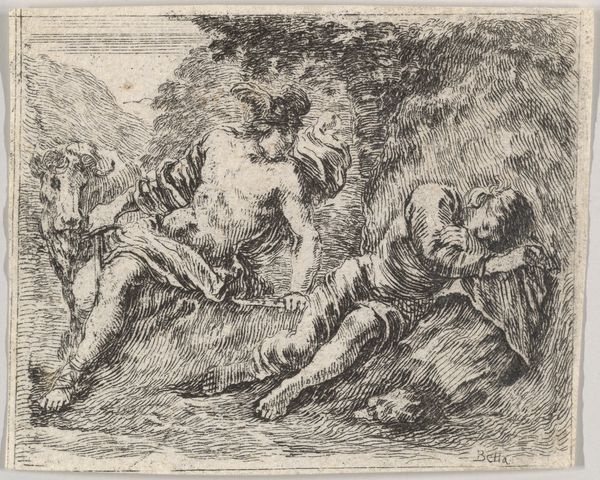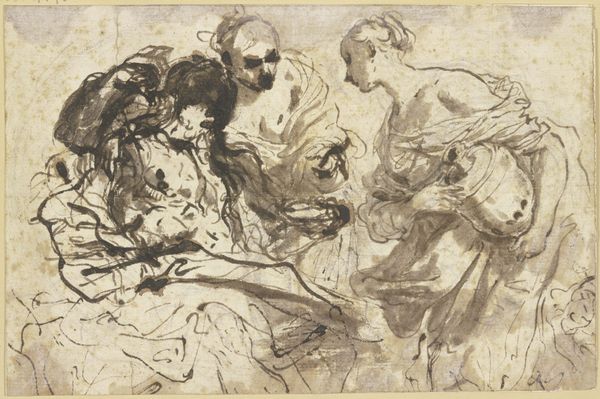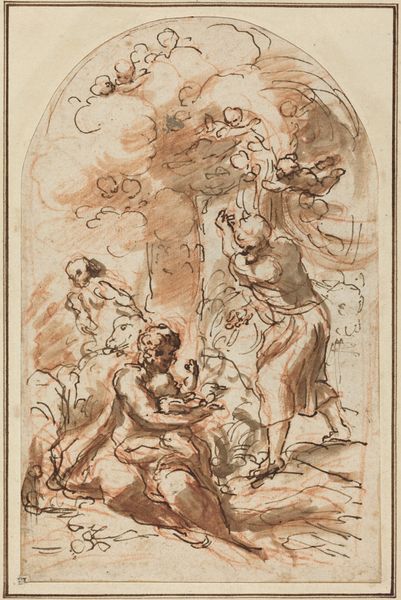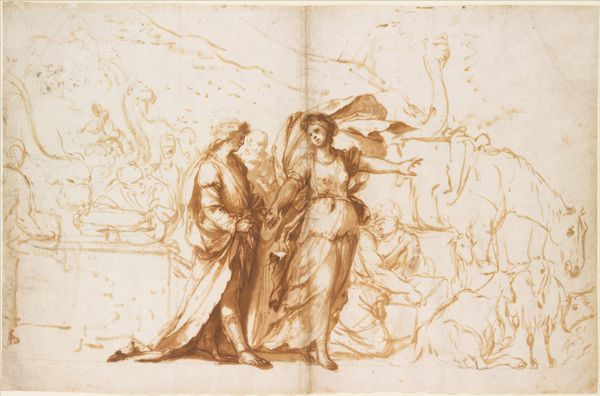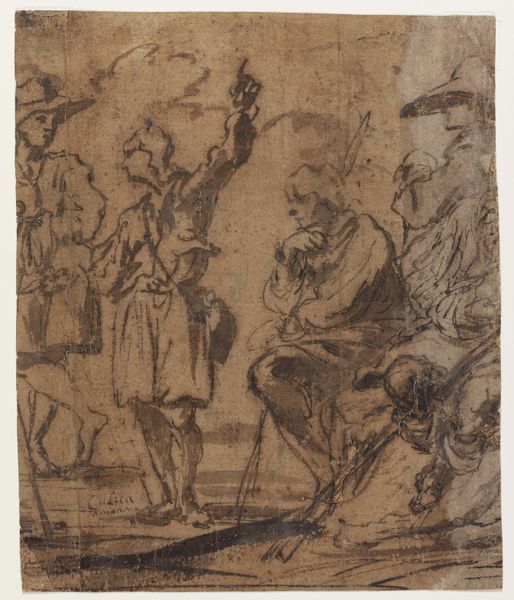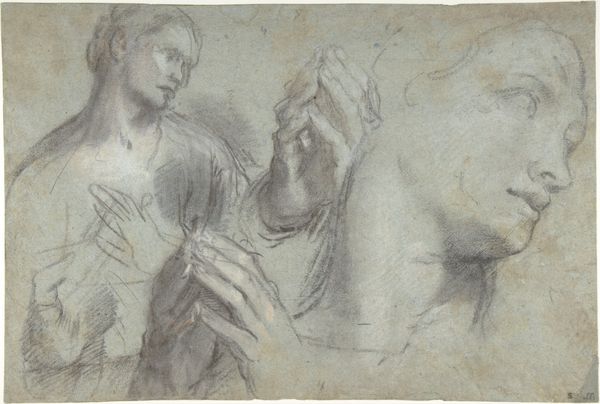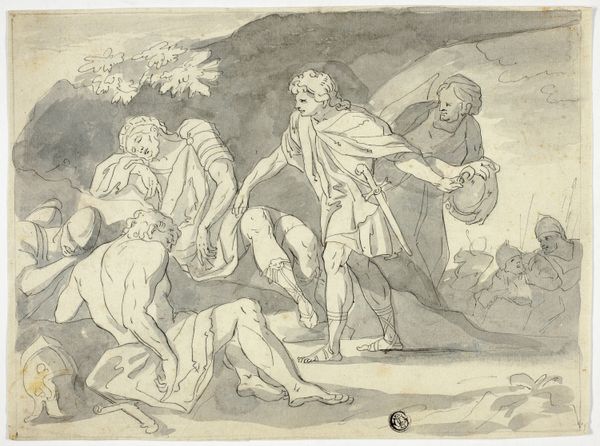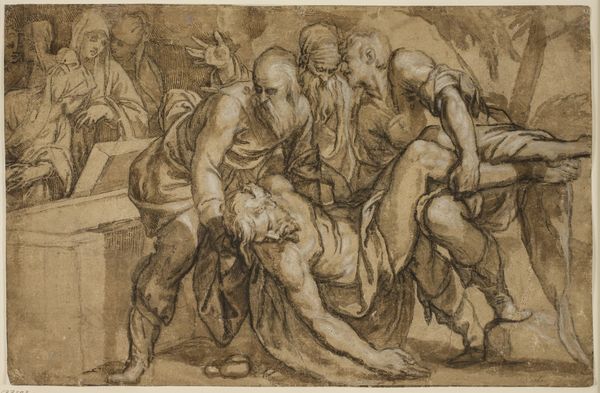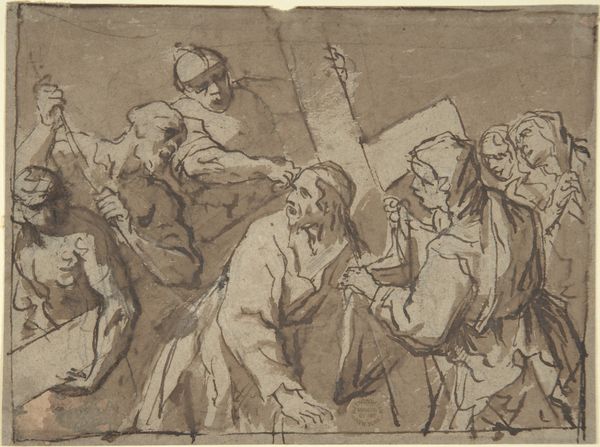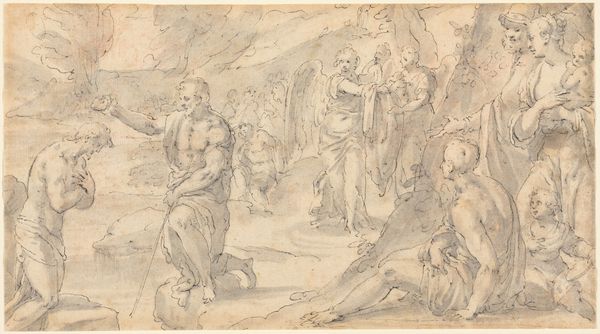
drawing, paper, graphite, charcoal
#
portrait
#
drawing
#
narrative-art
#
pencil sketch
#
landscape
#
paper
#
11_renaissance
#
graphite
#
portrait drawing
#
charcoal
#
italian-renaissance
Dimensions: 196 mm (height) x 324 mm (width) (bladmaal)
Curator: Before us is "Peters og Andreas' kaldelse," or "The Calling of Peter and Andrew," a drawing rendered between 1599 and 1633, by Bartolomeo Salvestrini. It is currently housed here at the SMK. Editor: The initial impression is quite ghostly. The subdued graphite and charcoal lend an ethereal quality, figures emerging from a misty backdrop. Curator: Indeed. Salvestrini’s skillful use of line and shading models form and generates a sense of dramatic dynamism. Note the landscape—a receding plane of meticulously rendered trees and structures that create a classical depth, all within a relatively confined space. Editor: This narrative moment of calling also speaks to the labor of discipleship and chosen family—often, throughout history, spiritual communities have provided a crucial social safety net in times of instability. There seems to be a spotlight specifically on one figure, positioned to highlight religious charisma. I can't help but wonder about his potential marginalization within broader historical power structures. Curator: It’s not just about simple representation, though, it’s how Salvestrini is managing the overall surface of the paper. The arrangement of the figures—notice how the tonal value and their spacing on the page cause an undulating movement of forms to unfold left to right across the picture plane. Editor: True, the composition guides the eye toward that moment of encounter, almost of illumination. But there's an undercurrent here. The selection of these individuals suggests the significance of those called in society. Their journey becomes a poignant one—are these figures empowered or exploited by forces beyond their understanding? Curator: I think the picture provides the structure for an internal reading independent of external sociohistorical factors. However, you interpret Salvestrini's handling of light as empowering. Fascinating! Editor: Ultimately, perhaps the work prompts each of us to interrogate what calling and being called mean, within our respective experiences.
Comments
No comments
Be the first to comment and join the conversation on the ultimate creative platform.
